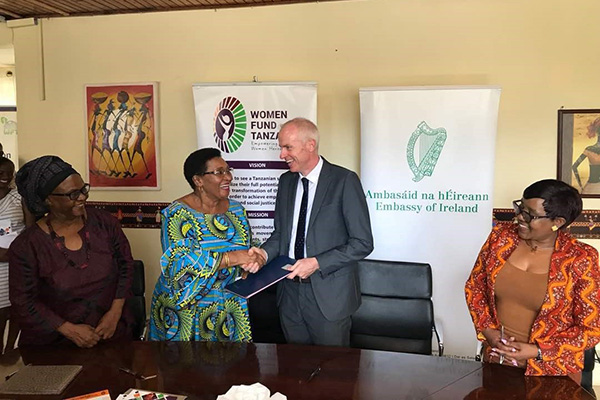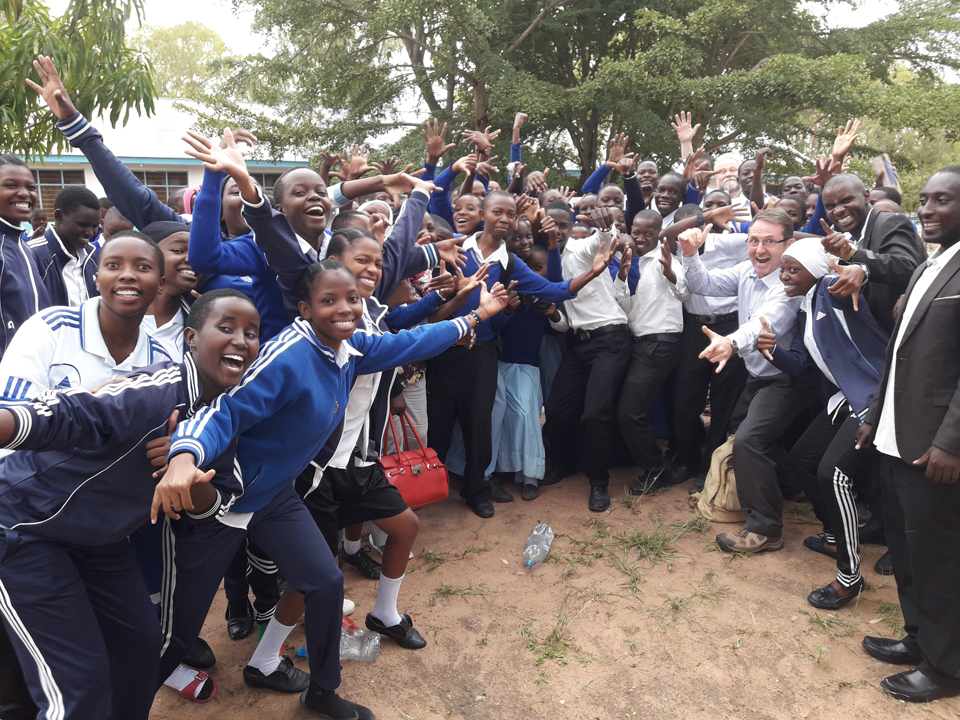Pamoja for Women’s Rights
News
05 November 2018
Ambassador Sherlock with members of Women Fund Tanzania at the grant signing.
Pamoja for Women’s Rights
The Embassy of Ireland in Tanzania has launched a new partnership with Women Fund Tanzania to support the Pamoja Women’s Voice and Leadership project. The programme is planned to run for 5 years, strengthening women’s rights organisations to advance gender equality in Tanzania. Ireland is providing an initial grant of €400,000 this year.
Pamoja means ‘together’ in Swahili, and the programme is designed to enhance collaboration across the women’s movement in Tanzania. WFT is the first activist and feminist fund in the country. Since 2011, it has been offering grant-based support for local initiatives while linking grassroots organisations into wider national initiatives. WFT has also built coalitions focusing on constitutional and electoral issues, as well as the Anti-Sexual Corruption Coalition. These coalitions work together to increase public knowledge of issues affecting women in Tanzania, as well as collaborating to engage government structures.
Low awareness of rights is a challenge, and bringing these coalitions together allows for knowledge-sharing on a broad scale. In 2016, Irish Aid provided funding to WFT to develop gender-sensitive civic education and contribute to a public debate on sexual corruption. More recently, WFT has funded an awareness-raising campaign to combat sextortion, increasing awareness of sextortion as a criminal offence and helping street leaders in communities in Dar Es Salaam to hold workshops in their communities.
Irish Aid is committed to advancing gender equality issues. In Tanzania, we have been working in areas including gender based violence and building awareness of rights for a number of years. Our Tanzania Country Strategy for 2017-2021 commits us to building and supporting women’s movements as part of a wider initiative, to ensure that the protections for women in the constitution are enacted in practice. In addition, we are integrating our gender equality work into our management of climate risks, building our understanding of the disproportionate impact of climate change on women and girls.


